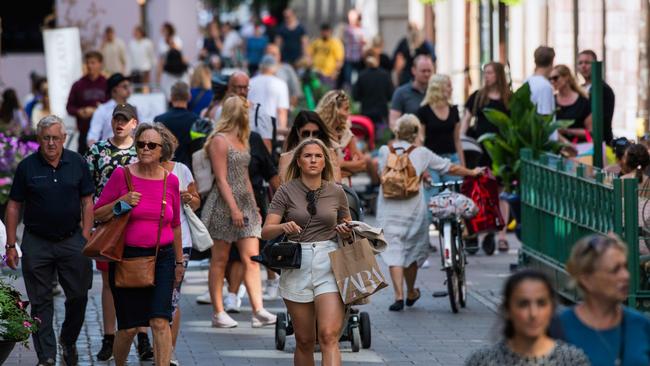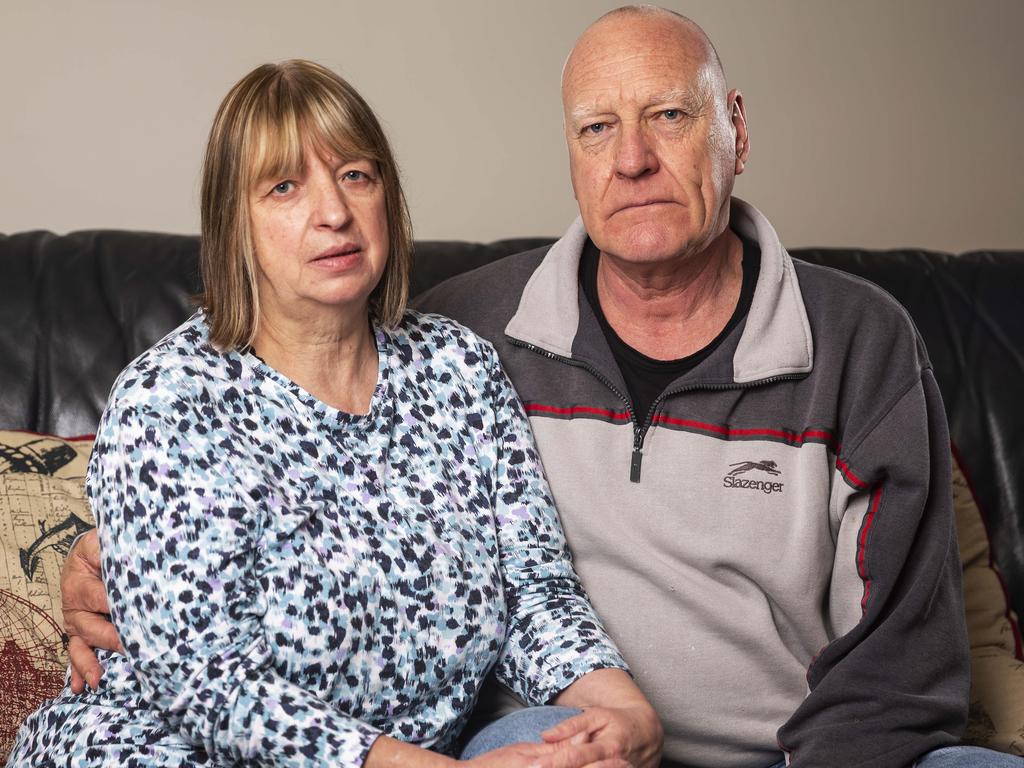Coronavirus: Drop in Sweden cases ‘down to immunity’
Sweden is beating many European countries in the fight against coronavirus, possibly because it didn’t implement hard lockdown.

Sweden is beating many European countries in the fight against new coronavirus infections, possibly because of its decision not to implement tough lockdown measures.
As cases surge across Europe, leading to new restrictions such as the mandatory wearing of face masks in many public areas, the infection rate in Sweden is falling.
“Sweden is doing fine,” Arne Elofsson, a professor in biometrics at Stockholm University, said. “Strict rules do not work as people seem to break them.”
Figures from the European Centre for Disease Prevention and Control show that the infection rate in France is more than 60 per cent higher than that of Sweden. France implemented a strict lockdown in the spring and requires masks to be worn in many public areas but has a fortnightly infection rate of 60 cases per 100,000 people.
Sweden, which decided not to implement compulsory measures at that time and which rejected the use of masks, has a rate of 37 cases per 100,000 people. The government is recording between 200 and 300 new cases a day, with deaths down to three last Friday.
Anders Tegnell, the Swedish state epidemiologist leading the response to the pandemic, has noted, based on the statistics, that infection rates have increased in countries such Spain, Belgium and France during and following the mandatory wearing of masks in many public areas.
“The belief that masks can solve our problem is very dangerous,” he said last week.

From the beginning of the pandemic Sweden built its response on voluntary social-distancing guidelines, including home-working and recommendations for people to avoid public transport.
Compulsory measures were limited to a ban on gatherings of more than 50 people, restrictions on visiting care homes, and table-only service in bars and restaurants. On Friday Stefan Lofven, the prime minister, told the newspaper Dagens Nyheter: “What has been discussed most, and what we did differently in Sweden, was that we did not close schools. Now there are quite a few people who think we were right.”
The decision not to implement a lockdown was not without cost. Sweden’s per capita death rate from COVID-19 is the sixth highest in the world and much higher than its Nordic neighbours: more than five times Denmark’s.
Even in terms of the death rate, however, Sweden’s experience is more complex than first apparent. Half the country’s 5,810 COVID-19 deaths have taken place in care homes, rather than in the general population.
Belgium, which implemented a stringent lockdown in March, has the highest per capita death rate from the virus in the world. Similarly to Sweden, about half the Belgian deaths occurred among elderly and infirm people in care homes who were not affected by the absence or otherwise of lockdown measures.
“Clearly it is a tragedy that so many people died in the elderly homes but it is not really clear what would have been the best strategy to avoid that,” Professor Elofsson said.
One key factor in Sweden’s lower rate of infection is thought to be the emergence of a form of “herd immunity” that is more advanced among Swedes than in countries where lockdowns were implemented.
This means that Sweden is now, according to some evidence, benefiting from avoiding compulsory restrictions.
Looking at the total number of people infected since the crisis began, Sweden has one of the highest figures in Europe, at 843 cases per 100,000 people. In France, after restrictions on social interaction and measures such as the use of face masks, which will be compulsory at work from September 1, the total figure is 349 cases per 100,000.
The higher level of cases among the general population in Sweden is thought – by Dr Tegnell and other Swedish scientists – to indicate a form of immunity much wider than that accounted for by the numbers of people carrying antibodies for the virus.
“What we are seeing now in Sweden is a rapid decline in the number of cases, and of course some sort of immunity must be responsible for that since nothing else has changed,” Dr Tegnell told the Unherd website last month.
A study publicised by the Karolinska Institute in Stockholm last week found that people who test negative for antibodies may still have a high level of immunity, through white blood cells that identify and destroy the virus. “T-cells are a type of white blood cells that are specialised in recognising virus-infected cells,” Professor Marcus Buggert, an immunologist at the institute, said. “Our results indicate that roughly twice as many people have developed T-cell immunity compared with those who we can detect antibodies in.”
The research indicates that levels of combined T-cell and antibody immunity could be more than 30 per cent, giving Sweden an edge in preventing the same resurgence in the virus that is taking place across Europe. “I think it is likely that such outbreaks will be easier to control in Sweden because there is immunity among the population,” Dr Tegnell said. “All previous experience with measles and other diseases shows that a high level of immunity in the population makes it easier to control the outbreaks than when there is no immunity at all among the population.”
Sweden’s approach to the virus has prompted heated debate at home and abroad. Around the time that deaths passed 1,000 in April, 22 of the country’s scientists wrote an article in Dagens Nyheter accusing “officials without talent” of having “no well-thought-out, well-functioning strategy”. In June, the month that deaths passed 5,000, Dr Tegnell said: “If we would encounter the same disease, with exactly what we know about it today, I think we would land midway between what Sweden did and what the rest of the world did.”
Mr Lofven agreed to a public inquiry but later told The Times: “We wanted to implement measures and to take decisions that we thought could be sustainable for a long time. Locking down a society? You can’t do that for too long.”
The Times







To join the conversation, please log in. Don't have an account? Register
Join the conversation, you are commenting as Logout